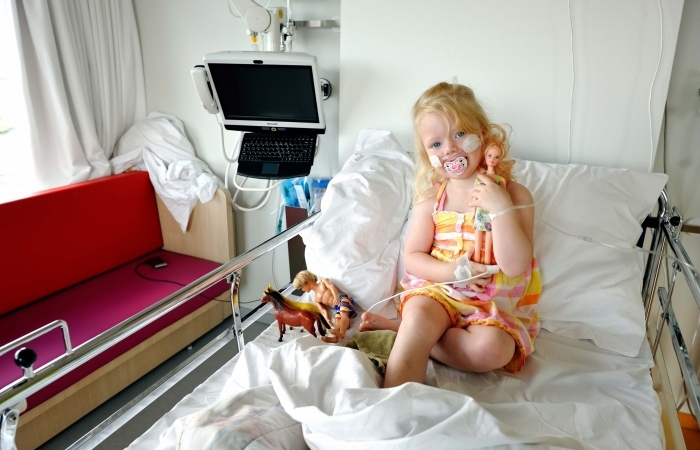Context
Megalencephalic Leukoencephalopathy with subcortical Cysts (MLC) is a rare genetic disorder, affecting the white matter of the brain. It was described for the first time in 1995 by the ‘Amsterdam Group’ of the Amsterdam University Medical Centers, led by Marjo van der Knaap, a Dutch professor of pediatric neurology and winner of the 2008 Spinoza Prize whose research focuses on white matter disorders.
MLC is a progressive condition that affects brain development and function. It is characterized by a larger than usual head circumference in children (infantile-onset macrocephaly), followed by slow motor and cognitive decline. The condition impacts the ability to use muscles, leading to mobility problems. While some lose the ability to walk early in life, others continue to be able to walk unassisted well into adulthood. However, most patients become wheelchair-dependent as teenagers.
People with MLC typically have a shorter than average lifespan, with some individuals succumbing to the disorder in their teens or twenties and others as late as their fifties.
Currently, there is no therapy or treatment available for patients with MLC, however insights into the disease mechanisms of MLC are rapidly increasing. This understanding is critical as it forms the basis of future therapeutic developments. Patient registries are a key tool for scientists researching rare diseases. Understanding the data gathered from these registries is critical to improve treatments. The only clinical database comprising a significant number of patients is the database from the Amsterdam University Medical Centers.
Goals
1. Form an international consortium on MLC.
2. Create an international registry for MLC patients.
3. Use this registry to advance MLC research through a natural history study.
Activities
The existing Amsterdam database will be transformed into an e-clinical data management platform (a Castor-based registry). With the approval of the Amsterdam Ethics Committee and consent from participating families, the international consortium of clinical experts on MLC will determine what information should be collected.
Once the data is obtained, a natural history study that will follow the participants over a pre-determined length of time, will be launched.
Researchers around the world will have access to the international registry for MLC patients, enabling them to study clinical details, genetic findings and MRI’s. The results of the study will be published and available online.
Key Performance Indicators to be Reached (KPIs)
– The successful creation of an international consortium
– The successful creation of an international registry for MLC patients
– The execution of a study using the registry data.
Myriad Canada is working with the Emma Children Hospital Foundation (Stichting Steun Emma Kinderziekenhuis) on this project, a non-profit organization based in Amsterdam (Netherlands) which supports the Emma’s Children Hospital and innovative research projects.
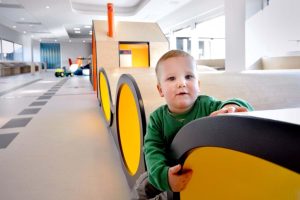 |
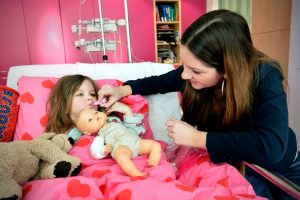 |
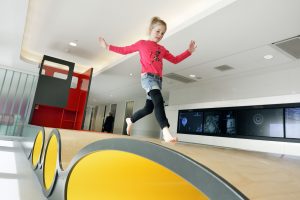 |
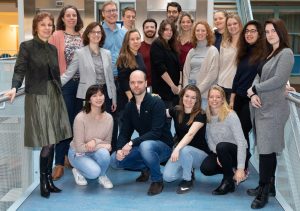 |
Myriad Canada’s role is to carry out charitable projects across the globe in accordance with its charitable purposes. We control and monitor the use of funds and the progress of charitable activities to ensure that donations made to Myriad Canada have the greatest impact in accordance with donors’ expressed wishes. As a member of the Myriad Alliance with offices in Canada, the US, Europe, Asia and Australia, Myriad Canada has a vast international network and extensive practical expertise.
How to support this project?
By credit card: At the top right of this page, indicate the amount you wish to donate, and make the donation online by credit card. You will receive a receipt for tax purposes by e-mail just a few minutes after making the donation. It is simple and quick!
By cheque:
- Make your cheque out to Myriad Canada.
- IMPORTANT NOTE: We receive a lot of cheques! You must please indicate “Project G207 – Advancing Research on the Rare Disease MLC” in the memo line of your cheque to ensure that it is allocated correctly.
- Mail your cheque to: Myriad Canada, 1 Place Ville Marie, Suite 1670, Montreal, QC, H3B 2B6, Canada.
By Direct Deposit:
- For transfer instructions, please email or call Caroline Chaulet: caroline@myriadcanada.org or +1 438 300 8122.
For Donation of Securities:
- Please email or call Caroline Chaulet: caroline@myriadcanada.org or +1 438 300 8122.
For Monthly Donations:
- We use CanadaHelps. Please find the link here.
If you need any assistance, please do not hesitate to contact us.
All donations are eligible for a tax receipt in Canada.
The projects are managed with the greatest care and professionalism.

